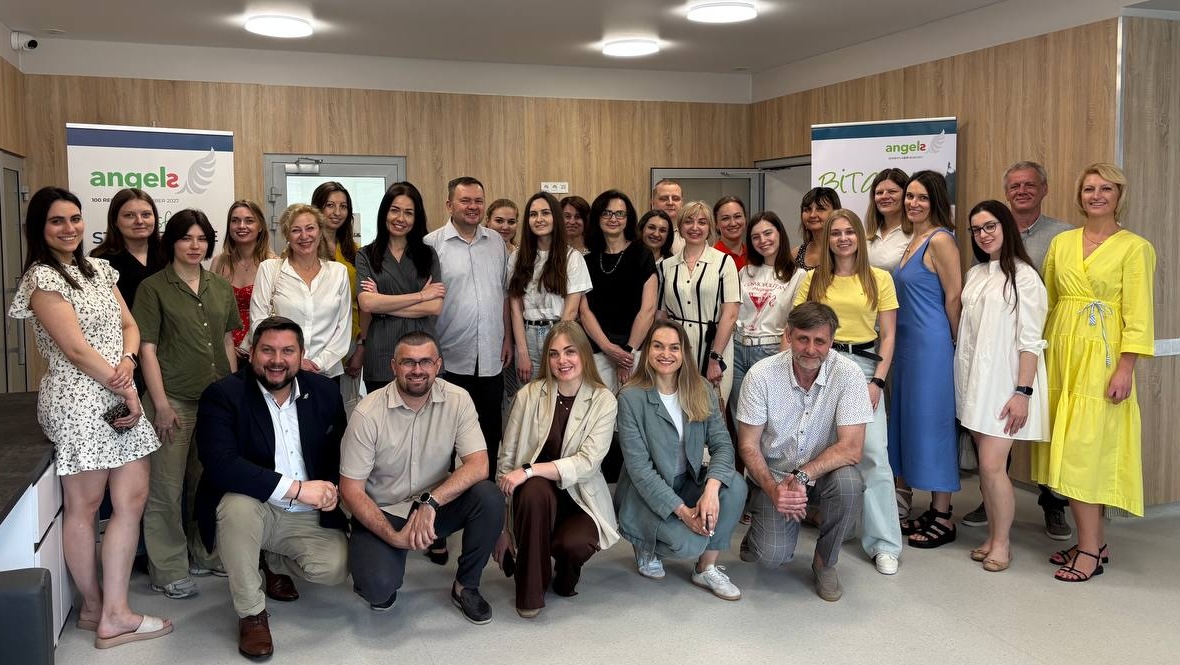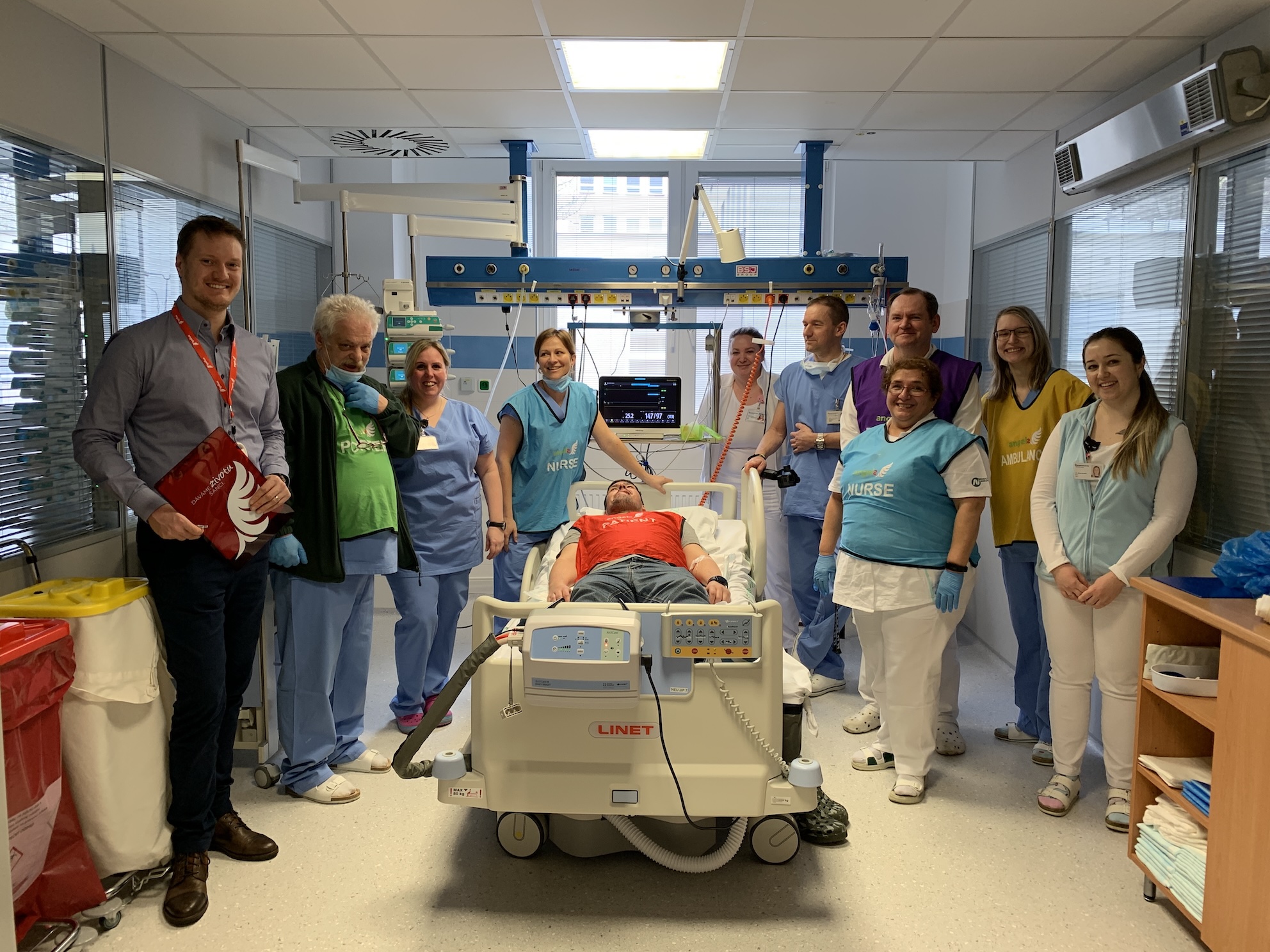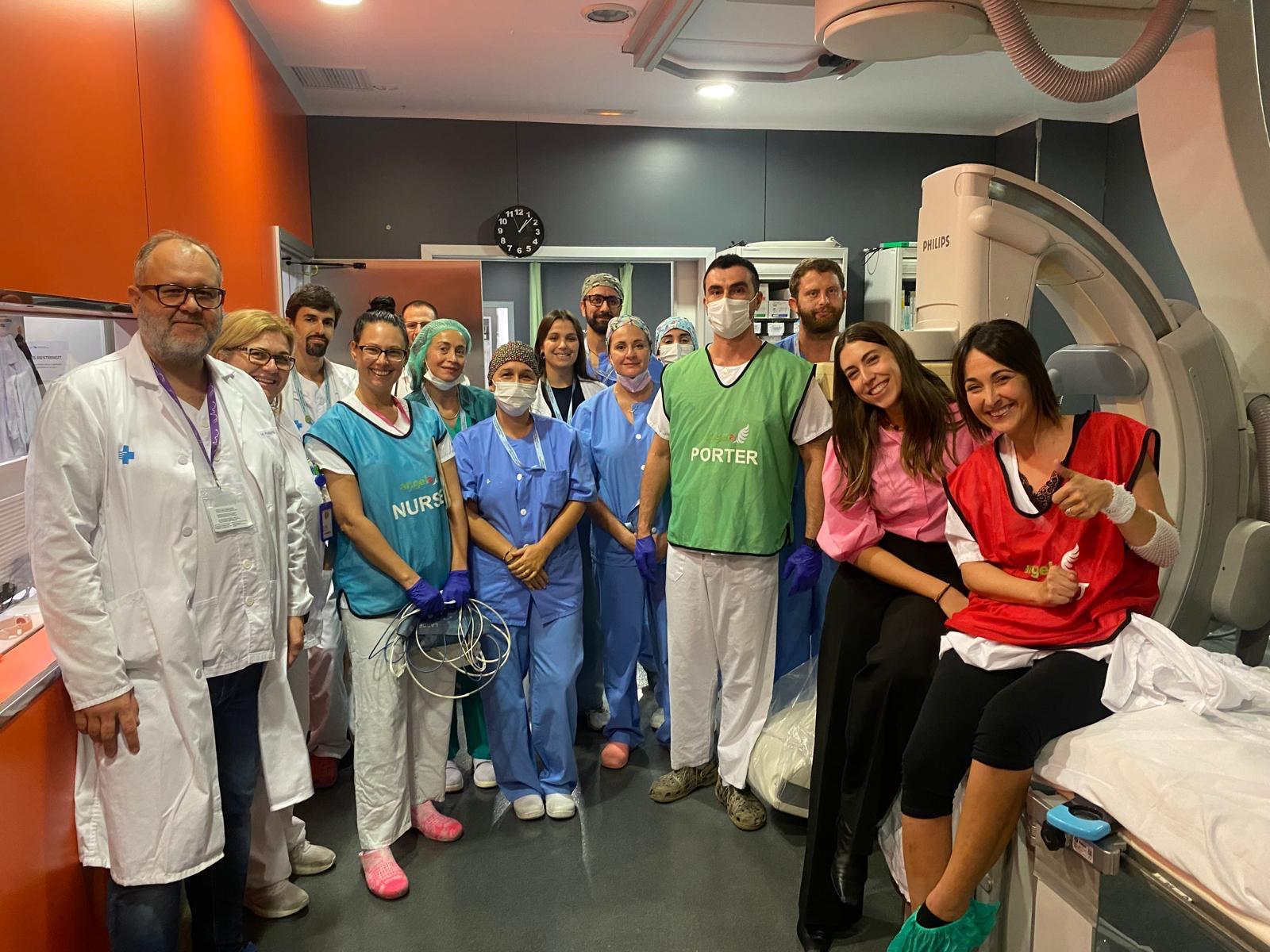
Cursa de convertire a primei regiuni Angels din Europa s-a încheiat cu un final de fotografie.
Ajungând la bandă mai mult sau mai puțin simultan au fost două regiuni din Ucraina (Khmelnytskyi Raion și Kamianets-Podilskyi Raion), Savona din Italia, Algarve din Portugalia și Albacete din Castilla–La Mancha, Spania. Dar cea mai înaltă platformă de pe podium a aparținut Almería, unde comunitatea de AVC s-a adunat pe 30 octombrie pentru a sărbători acest reper important.
Când, la începutul anului 2024, consultantul Angels pentru Andalusia, Susana Granados, s-a alăturat cursei pentru a converti prima regiune Angels din Europa, Almería părea un concurent puternic. Spitalul Universitar Torrecárdenas din capitală era deja campion. Cele două spitale mai mici, Spitalul Universitar Poniente și Spitalul La Inmaculada, au participat ambele la Zilele Angels și abia așteptau să lucreze cu ea. Iar serviciul de urgență din regiune, Centro De Emergencias Sanitarias (CES) 061 Almería, a avut deja două premii EMS Angels pe peretele trofeului.
Dar pentru a-și atinge obiectivul, ar trebui să pună în curtile dure. Atât Poniente, cât și La Inmaculada ar trebui să atingă cel puțin statutul de aur pentru ca regiunea să fie în discuție; și au existat ținte de atins pentru implementarea Eroilor FAST pentru a se asigura că populația Almería ar ști ce să facă dacă cineva ar avea un AVC.
Convertirea unei regiuni Angels înseamnă generarea schimbării la scară largă și transformarea spitalelor, serviciilor de urgență, autorităților locale și educatorilor publici în toate colaborează pentru a oferi mâini sigure pacienților cu AVC din comunitățile lor. Ajută atunci când există un punct luminos pentru a vă lumina calea.
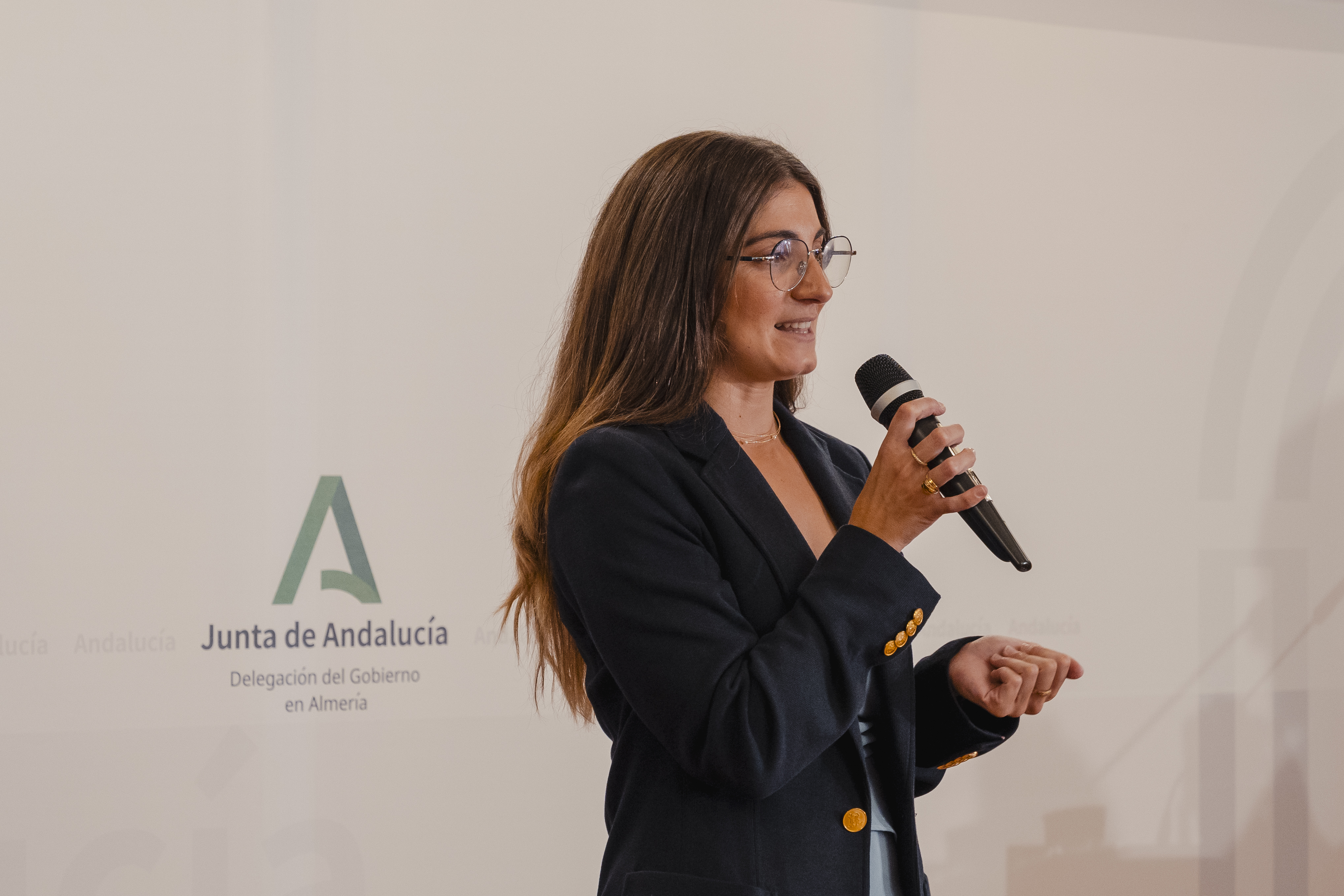
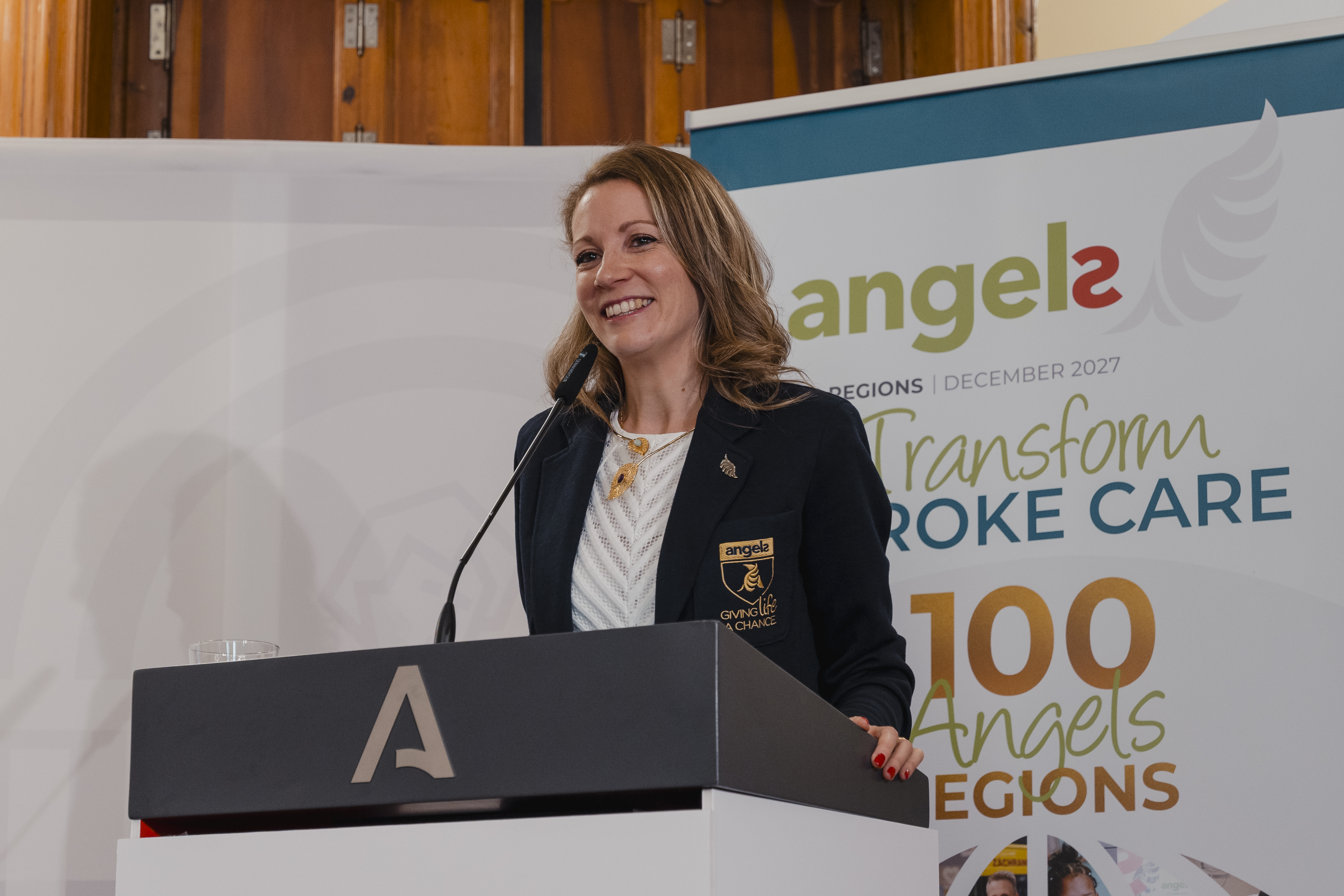
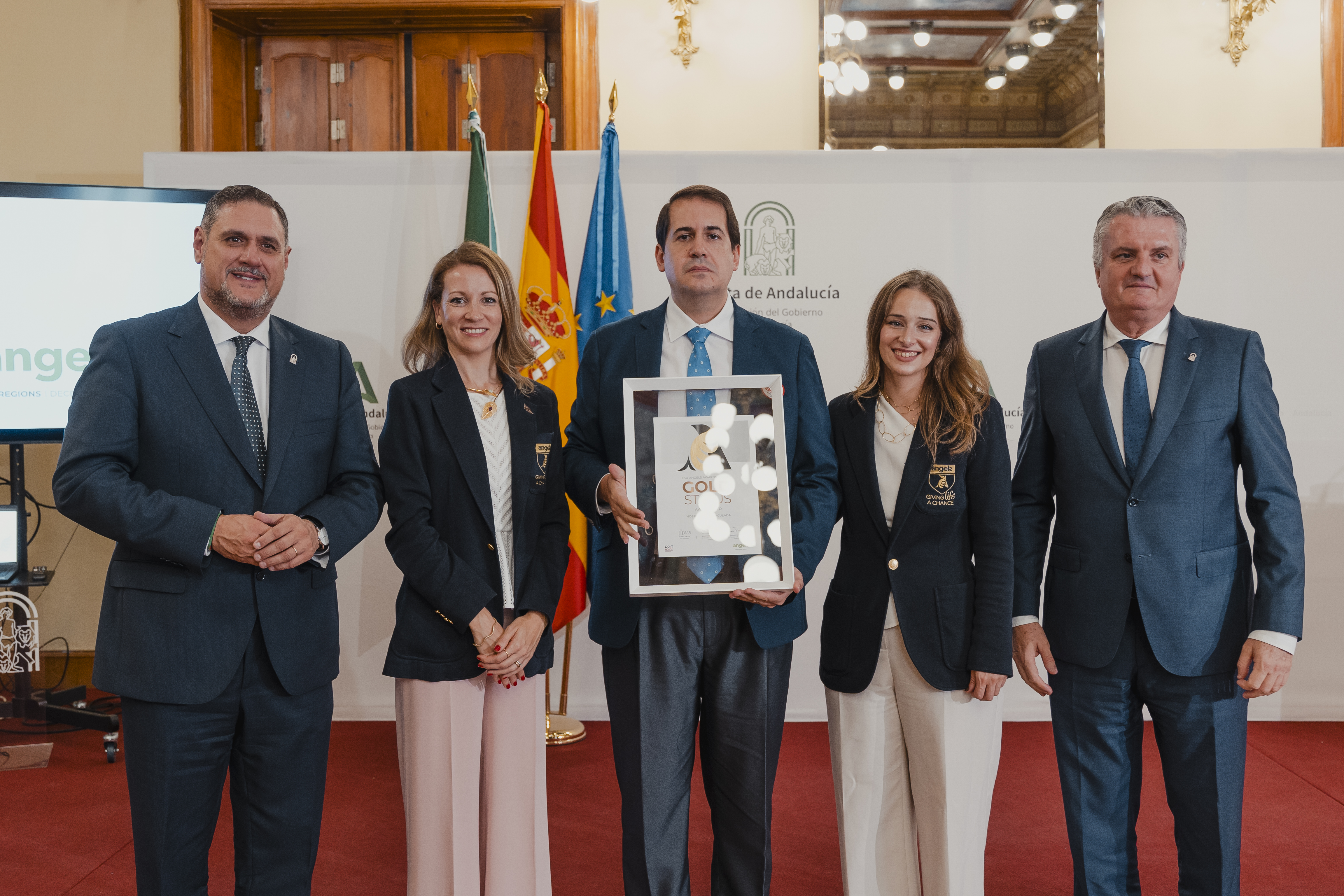
Punctul luminos răspândește lumina
Dintre toate zonele luminoase din Almería, unul a strălucit mai bine decât toți ceilalți. În 2022, Spitalul Universitar Torrecárdenas a devenit primul spital cu diamant din Andalusia și va deveni primul spital din Spania care a obținut patru premii ESO Angels consecutive. Premiul l-a pus pe Almería pe harta națională și a marcat un punct de cotitură pentru îngrijirea AVC-ului în regiune.
„A existat înainte și după”, spune Susana despre acest moment izbucnit în apă. A existat toate șansele ca succesul lui Torrecárdenas să ajute la deblocarea potențialului în restul provinciei și să înscrie încă o premieră pentru Almería.
Pentru consultanța sa la Spitalul Universitar Poniente și Spitalul La Inmaculada Susana, a urmat același scenariu – organizând întâlniri multidisciplinare și înscriindu-i la RES-Q, astfel încât ei și ea să poată analiza traseul și să-și evalueze performanța.
Își amintește: „Instruirea de simulare de la Spitalul Poniente a fost prima mea simulare de până acum și a mers destul de bine. De asemenea, am convenit imediat asupra planurilor de implementare a acțiunilor prioritare cheie și de îmbunătățire a îngrijirii post-acute în ambele spitale.”
Spitalul Inmaculada este situat în nord, care este singura parte a regiunii care nu este acoperită de SMU din regiune, Centro de Emergencias Sanitarias (CES) 061 Almería. Medicii de îngrijire primară se prezintă la pacienți în vehicule medicale până la o linie imaginară numită km 21, unde sunt transferați în îngrijirea CES și transportați la hub.
Susana a organizat un eveniment de instruire care a implicat medici din Inmaculada, CES și îngrijirea primară și a pus bazele implementării scalei RACE, care este o scală neurologică simplă și rapidă pentru detectarea pacienților cu AVC acut cu o probabilitate ridicată de a avea o ocluzie a vaselor mari.
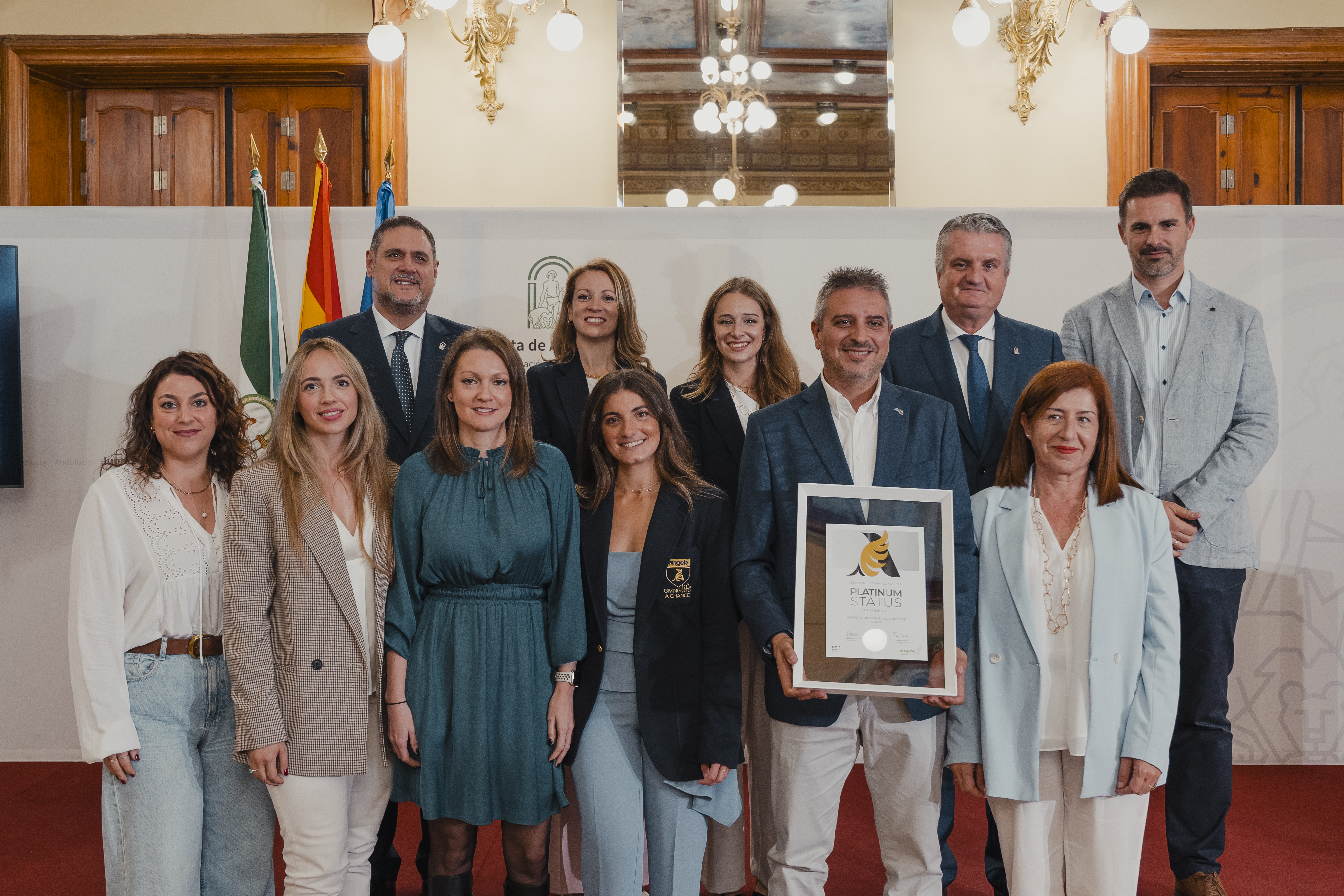

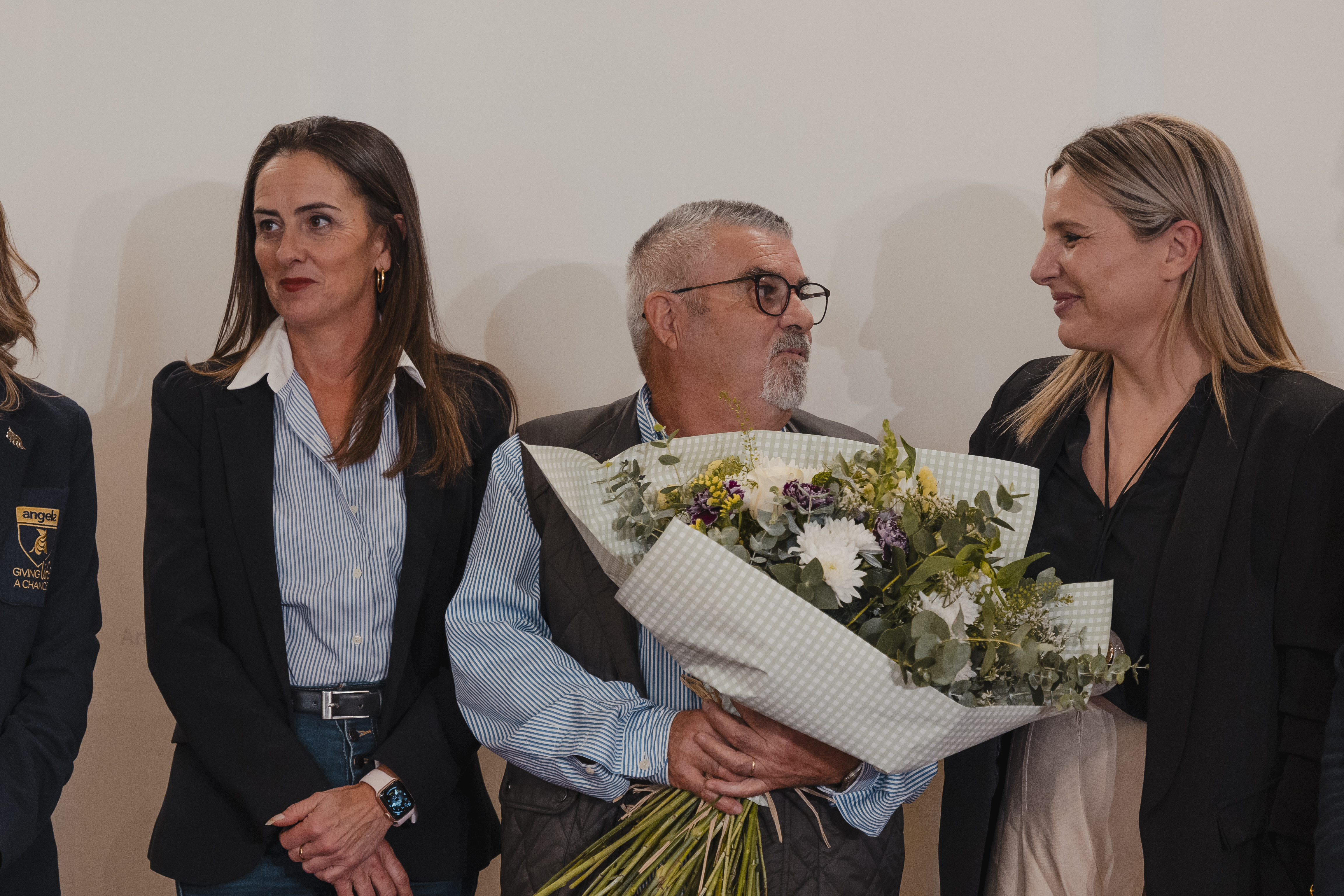
O contaminare a motivației
Deoarece călătoria unui pacient cu AVC începe în comunitate, conștientizarea publicului cu privire la AVC este prima verigă din lanțul supraviețuirii. Pentru ca Almería să devină prima regiune Angels din Europa, au trebuit, prin urmare, să atingă obiectivele pentru implementarea Eroilor FAST – campania premiată de sensibilizare cu privire la AVC, care a educat deja peste jumătate de milion de copii cu privire la AVC. În Almería, un proiect pilot realizat cu ceva timp înainte nu a avut un impact prea mare, dar Susana a avut o descoperire când Joaquín García, asistentul medical șef de neurologie de la Spitalul Universitar Torrecárdenas, a avut ideea genială de a lucra cu asistenții medicali din școli.
După ce au asigurat pentru prima dată sprijinul miniștrilor sănătății și educației, au prezentat Eroii FAST o campanie pentru peste 50 de asistenți medicali din școli, iar până în iulie programul a fost implementat în 22 de școli.
Pentru a-și depăși limitele spitalelor, Susana avea un plan de consolidare a activității sale în regiune. Ea spune: „A fost important ca, după ce am lucrat separat cu fiecare spital, să le reunim pe toate pentru a crea avânt. Această oportunitate a apărut atunci când comitetul de coordonare din regiune m-a invitat să îi ajut să își organizeze ziua anuală a AVC-ului, care mi-a oferit acces la
toți liderii de opinie regionali cheie în același timp, în aceeași zi, în aceeași încăpere.
„Am prezentat, desigur, strategia regiunii Angels și aș spune că a existat o contaminare a motivației, în special atunci când am discutat despre Premiile Angels. Desigur, toate spitalele și-au dorit unul și am discutat despre care ar putea fi pașii următori; ce am putea face și cum ne-am putea ajuta reciproc.”
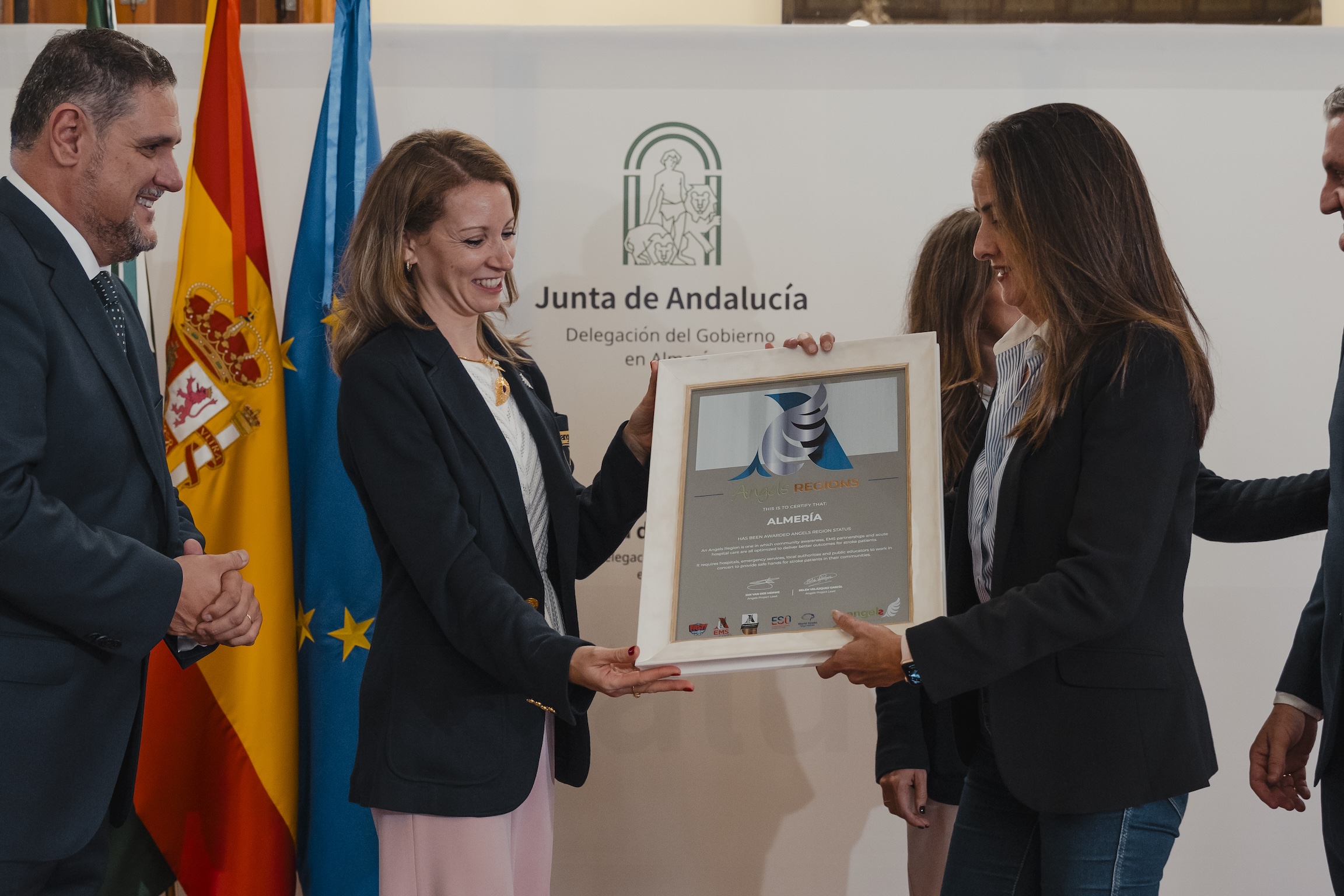
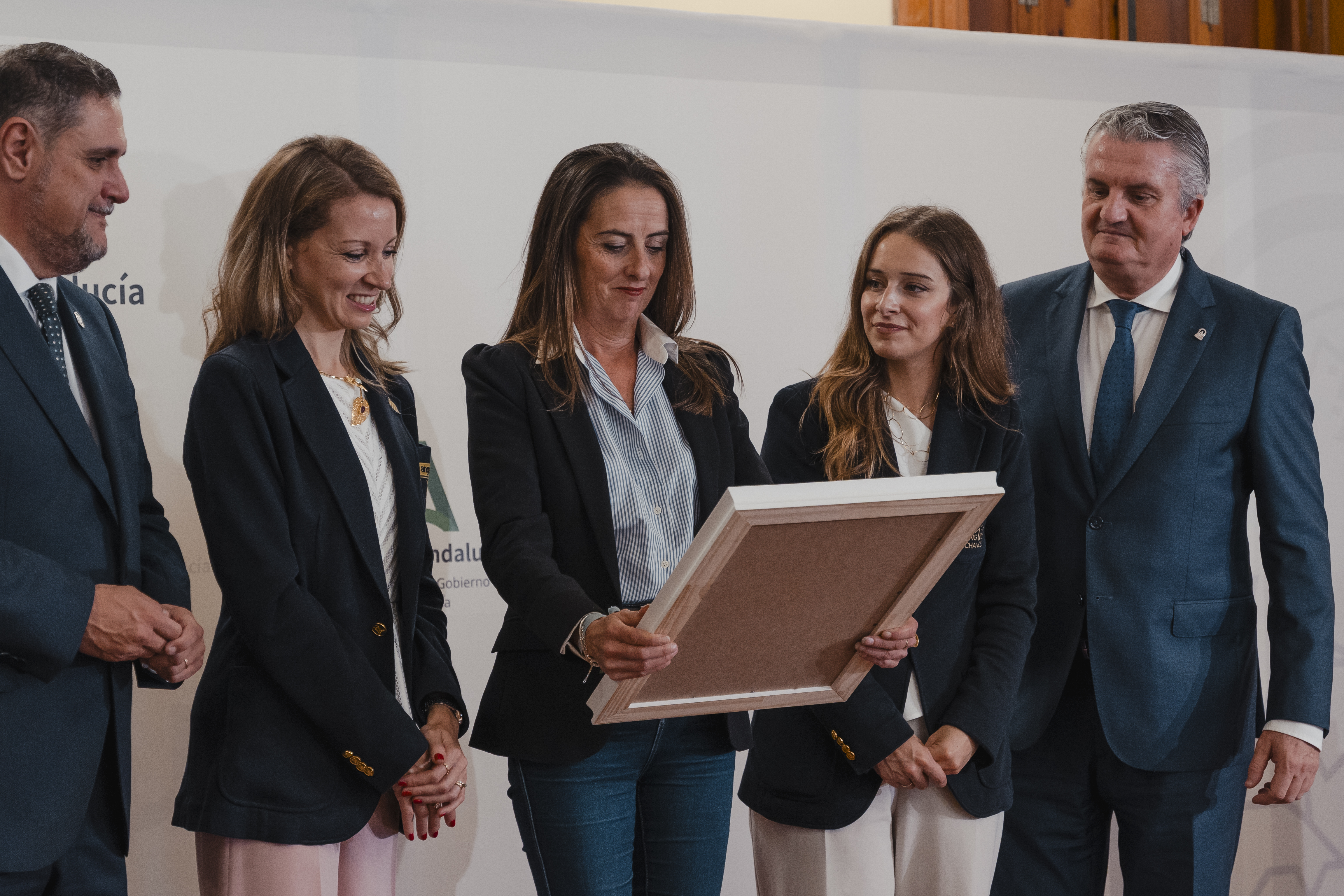
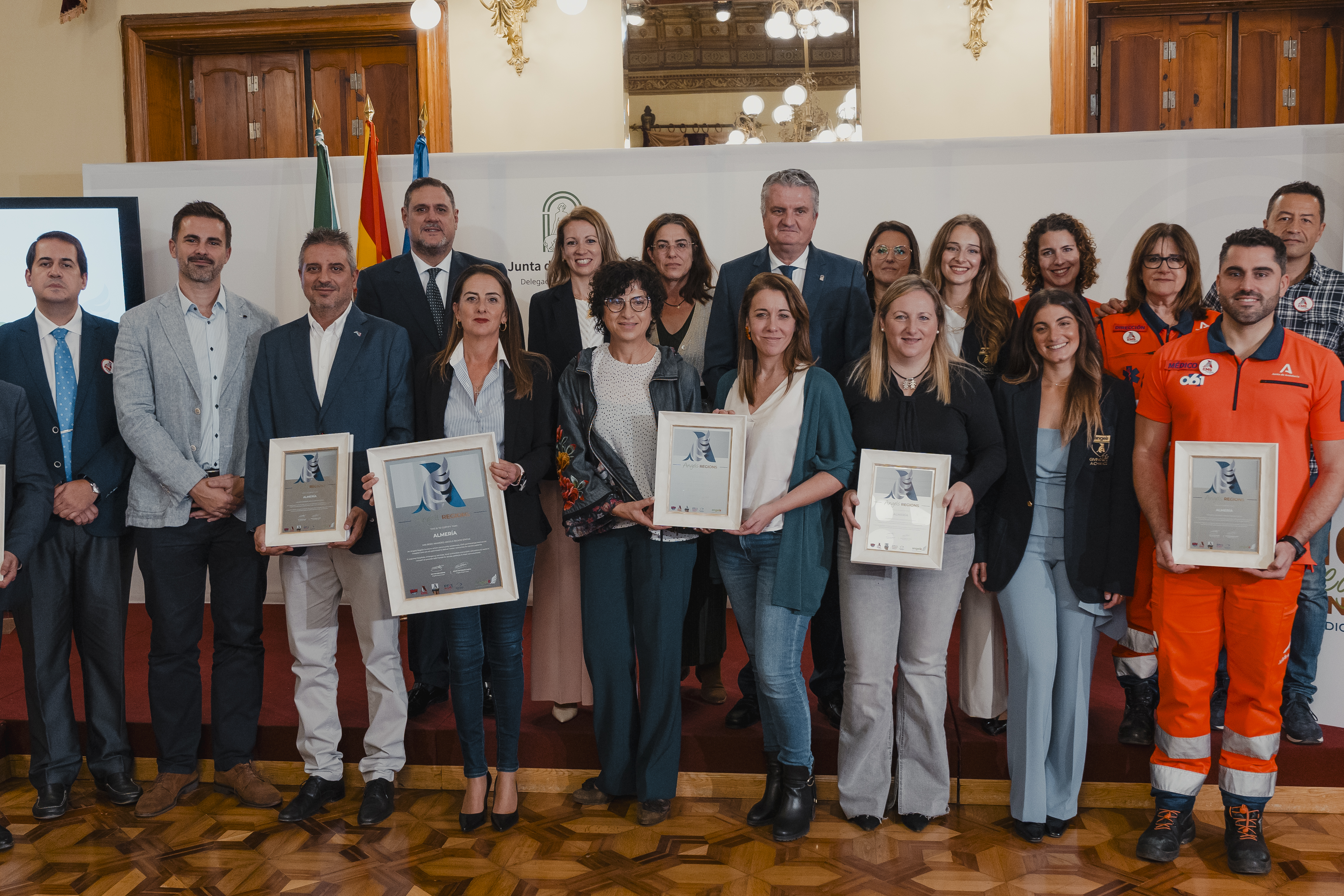

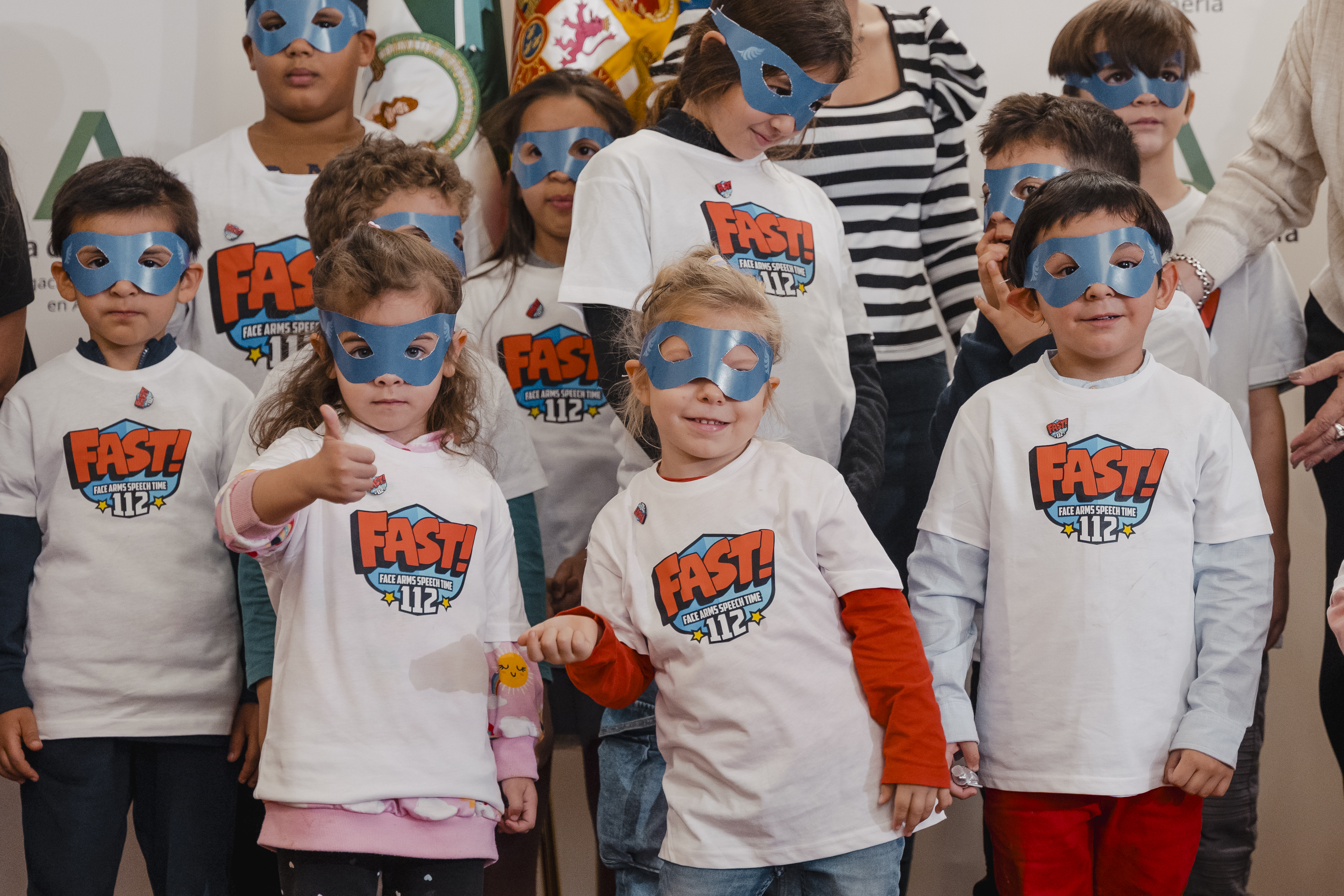
O sărbătoare veselă
Data viitoare când comunitatea de AVC din Almería s-a întâlnit în aceeași cameră, a fost pe 30 octombrie 2024 și de data aceasta a fost pentru o sărbătoare. Rezultatele din trimestrul doi au confirmat că Spitalul Poniente a câștigat un premiu de platină, iar La Inmaculada a câștigat primul lor aur. Torrecárdenas a primit un alt diamant, desigur, și CES 061 Almería al treilea premiu de platină.
Lucrând împreună spre același obiectiv, Almería s-a asigurat că pacienții cu AVC din regiune vor avea a doua șansă.
Acest spirit de bunăvoință colectivă și scop comun a fost evident în cadrul unei adunări a tuturor celor care au jucat un rol în transformarea Almería într-o Regiune Angels. În spatele podiumului au fost ministrul guvernului din Almería, dna Aránzazu Martín Moya, ministrul educației,
Dl Francisco Alonso Martínez, coordonator regional al asistenților medicali școlari, dna Sonia Martínez Giménez, ministru al sănătății, dl Juan de la Cruz Belmonte Mena, coordonator regional pentru AVC Dr. Patricia Martínez Sánchez și coordonator regional pentru AVC al CES 061, Gabriel Navarro Lorenzo.
Coordonatorii de AVC din toate cele trei spitale, Dr. Salvador Maroto de la Spitalul de Poniente, Dr. Mateo Silvente de laLa Inmaculadași Dr. Antonio Arjona de la Torecárdenas, au împărtășit scena, la fel ca și supraviețuitorul unui AVC, dl. Rogelio Manuel Parrilla Vargas, și o întreagă clasă de mici eroi de la școala rurală publică, Tres Villas din Nacimiento.
Premiul a avut o importanță deosebită, a spus dna.Martín. „Reprezintă o recunoaștere pentru care multe regiuni de pe continent și din restul lumii lucrează pentru a deveni prima persoană din Europa care atinge acest nivel de colaborare.”
De când a făcut istorie devenind prima regiune Angels din Europa, au existat mai multe ocazii de sărbătorit. Spitalul Poniente și La Inmaculada au câștigat fiecare al doilea premiu, iar Torrecárdenas a revenit în cele opt diamante, arătând lumii că o comunitate care lucrează împreună câștigă împreună.

